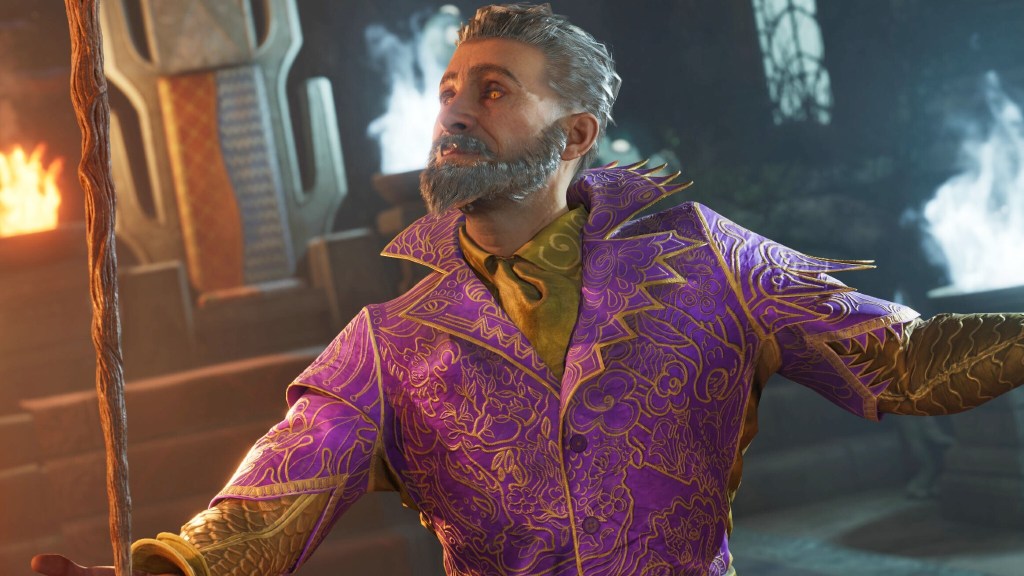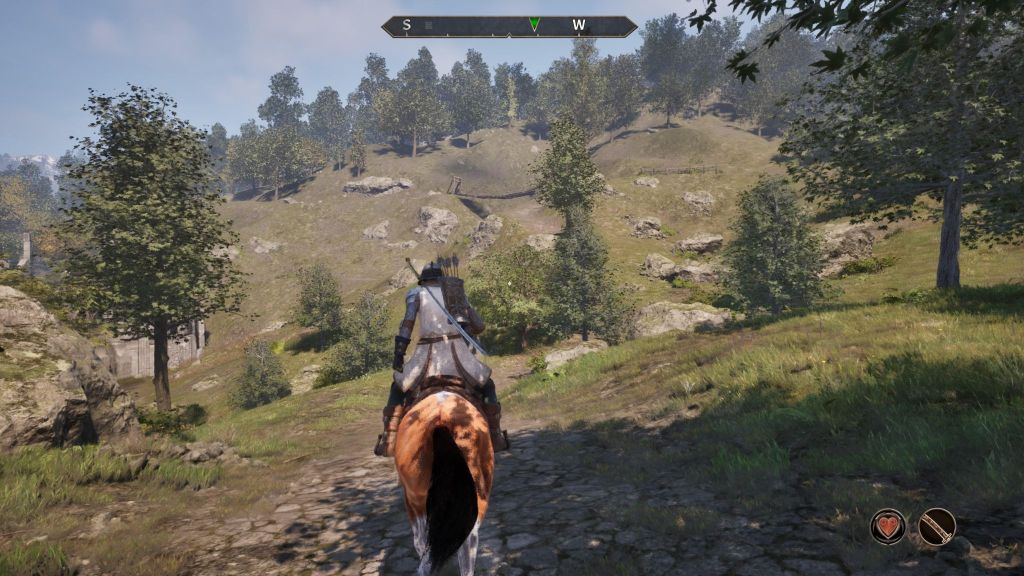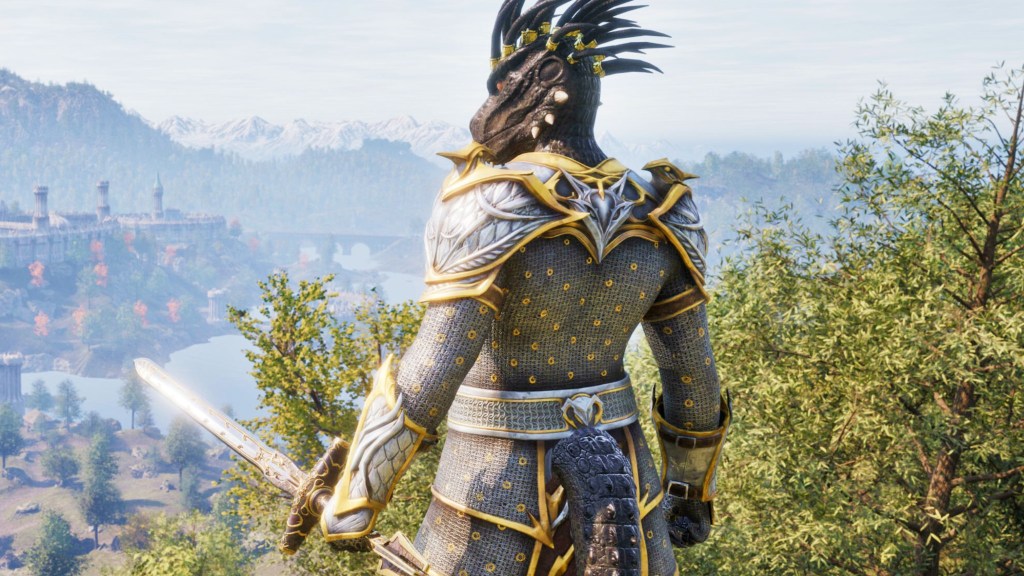A Love Letter to Legacy or a Cash Grab?

The Elder Scrolls IV: Oblivion Remastered dropped seemingly out of nowhere, and for a brief moment, the gaming world felt like it had stepped through a nostalgic portal. Released with barely any fanfare, this Unreal Engine 5 overhaul of the 2006 classic came bundled with every major expansion, including the beloved Shivering Isles. Enhanced visuals, overhauled AI, and an impressive 125 GB install size seemed to promise a true rebirth for one of the most iconic open-world RPGs ever made. But as the initial shine begins to fade and players already turn to mods to improve the experience, a deeper question remains: is Oblivion Remastered a genuine tribute to one of Bethesda’s finest titles, or is it just the latest corporate play to cash in on our collective memories?
Despite being a Bethesda game through and through, the remaster was handled by a third-party studio—one that specializes in modernizing older titles using pre-existing frameworks like Unreal Engine. While Bethesda supervised, the core development was outsourced. That decision, while not inherently bad, speaks volumes. Offloading the work to another studio (and engine) suggests more of a logistical maneuver than a heartfelt project. In plain terms, it looks a lot like a cost-cutting decision dressed up as fan service.
Developing in Unreal Engine 5 means that a lot of the heavy lifting, including lighting, terrain rendering, and physics systems, was handled by the engine itself. It’s not that the team didn’t work hard (credit where credit’s due—the remaster looks undeniably beautiful), but the game itself feels hardly touched beyond the graphical level. One could argue that the whole game was imported into UE5, stripped of its assets, and replaced, hoping that the Unreal Engine’s superb graphics rendering would carry a lot of the game (at the cost of performance).
It also raises the question: if Bethesda wasn’t hands-on with this remaster, is it really an Oblivion product? Or just a fan mod with an official price tag and corporate backing?
When I first saw the game’s file size, my skepticism for Oblivion Remastered began to brew. 125 GB might sound like a sign of scale and depth, but in practice, a lot of that size goes to assets. The game is still Oblivion under the hood—there’s no expansion of content, no deep questline additions, and certainly no modern gameplay systems to speak of. It’s big because it looks big, not because it is big.
To Oblivion Remastered’s credit, the visuals are leagues beyond what we saw in 2006. The forests feel alive, the architecture pops, and the night sky—still one of the franchise’s unsung heroes—is breathtaking, even when everything is displayed under a shade of yellow. But that glow starts to fade once you actually start playing.
Despite all the visual polish, Oblivion Remastered has left many of the game’s outdated mechanics untouched. The clunky combat system that was starting to feel dated in 2006, the AI that swings from genius to brain-dead in a single conversation—all of it is still here. There’s something oddly jarring about watching a photorealistic NPC walk like a mannequin and deliver dialogue like they’ve just been rebooted.

While to nostalgic gamers these may seem like purposeful choices made in tribute to the original, I remain skeptical. This, more than anything, suggests the remaster was more interested in looking good than playing well. And that’s a shame, because Oblivion’s systems (some of which definitely do hold up, especially when compared to Skyrim) desperately needed refinement. Instead, they’ve been preserved, quirks and all, likely as another cost-saving measure. Why spend the time modernizing the mechanics when you can just layer them with pretty textures and call it a day?
It’s a missed opportunity. There was a real chance to bring Oblivion’s timeless world into a modern gameplay framework—to make it feel fresh for a new generation while keeping the heart of what made it special. Instead, what we got was a museum piece: beautiful to look at, but ultimately behind glass. A remaster, when I think many of us wanted a full-on remake.
It’s also worth noting that Oblivion Remastered players are facing problems on the Steam Deck, a clear indication that the port’s optimization might not be living up to its technical promises and potentially a sign of cost-cutting measures in the game’s development.

It’s impossible to talk about Oblivion Remastered without addressing the context of Bethesda’s recent history—namely, the failure of Starfield to capture hearts and headlines the way the studio hoped. Starfield was supposed to be Bethesda’s triumphant return, its magnum opus, a sprawling space epic to rival Skyrim. Instead, it stumbled out of the (Oblivion?) gate and has struggled to stay relevant ever since.
Enter Oblivion Remastered.
It’s almost poetic. When the new thing doesn’t work, bring back the old thing everyone loves. And sure enough, it worked. Social media exploded with clips, screenshots, and memes, even before the game was “officially” announced (though many can call the ‘leaked’ information a marketing strategy). Nostalgia hit hard, and Bethesda got the positive press boost it desperately needed. The timing just feels a little too convenient. Not too long after Bethesda started losing the goodwill of its core audience, even fading into somewhat obscurity, it dropped a remastered fan favorite, made by someone else, in a prettier engine, free as part of a subscription service they’re heavily promoting.
Was this about celebrating legacy? Or salvaging public image?

Another layer to the story is the game’s availability on Xbox Game Pass. On paper, that’s a win for players—access to a major remaster without shelling out what I personally consider to be about $30 more than the game deserves to cost. But the deeper you look, the more it feels like part of a broader push. Microsoft has been throwing major weight behind Game Pass, and what better way to drive engagement than by offering up a beloved Elder Scrolls title, prettied up and packaged with minimal effort?
The existence of the Xbox Game Pass feels like yet another shift away from buyer ownership, putting a title that was released before the normalization of digital downloads on a platform you can only exclusively access online. Thankfully, though, signs seem to be pointing towards Oblivion Remastered having a physical release, so you can still (hopefully) own some physical media in an age where that prospect is getting harder and harder.

Oblivion has always had a certain charm as an awkward, endearing middle child between the grit of Morrowind and the relative polish of Skyrim. What makes it special isn’t just the nostalgia, but the uniqueness of its setting, tone, and pacing. This remaster had a chance to not just preserve that, but to build on it—to refine systems, fix known issues, even add light modern features that could have elevated the experience.
Instead, it feels like we got the bare minimum needed to get people talking. To me, it feels less like a love letter to a classic and more like a cashgrab.
RELATED: The Elder Scrolls IV: Oblivion Remastered Players Discover Character They Never Found in the Original
If you’ve never played Oblivion before, the remaster might be your best entry point. It’s the same classic story and world, dressed in modern clothes (though some of those older designs do not translate well to modern models). But for longtime fans hoping for a thoughtful update, it might feel more like Bethesda asking for our attention (or subscription) than offering something meaningful in return.
Oblivion Remastered sits in an awkward space between reverence and revenue. It’s beautiful, it’s nostalgic, and it works—but only just. For some, that’s enough. For others, it might feel like a targeted attack on your wallet meant to capitalize on gamer nostalgia.
At the end of the day, Oblivion Remastered isn’t bad—it’s just safe. And maybe that’s the real disappointment. When you’re dealing with a legacy this iconic, playing it safe is the most uninspired choice you can make.




